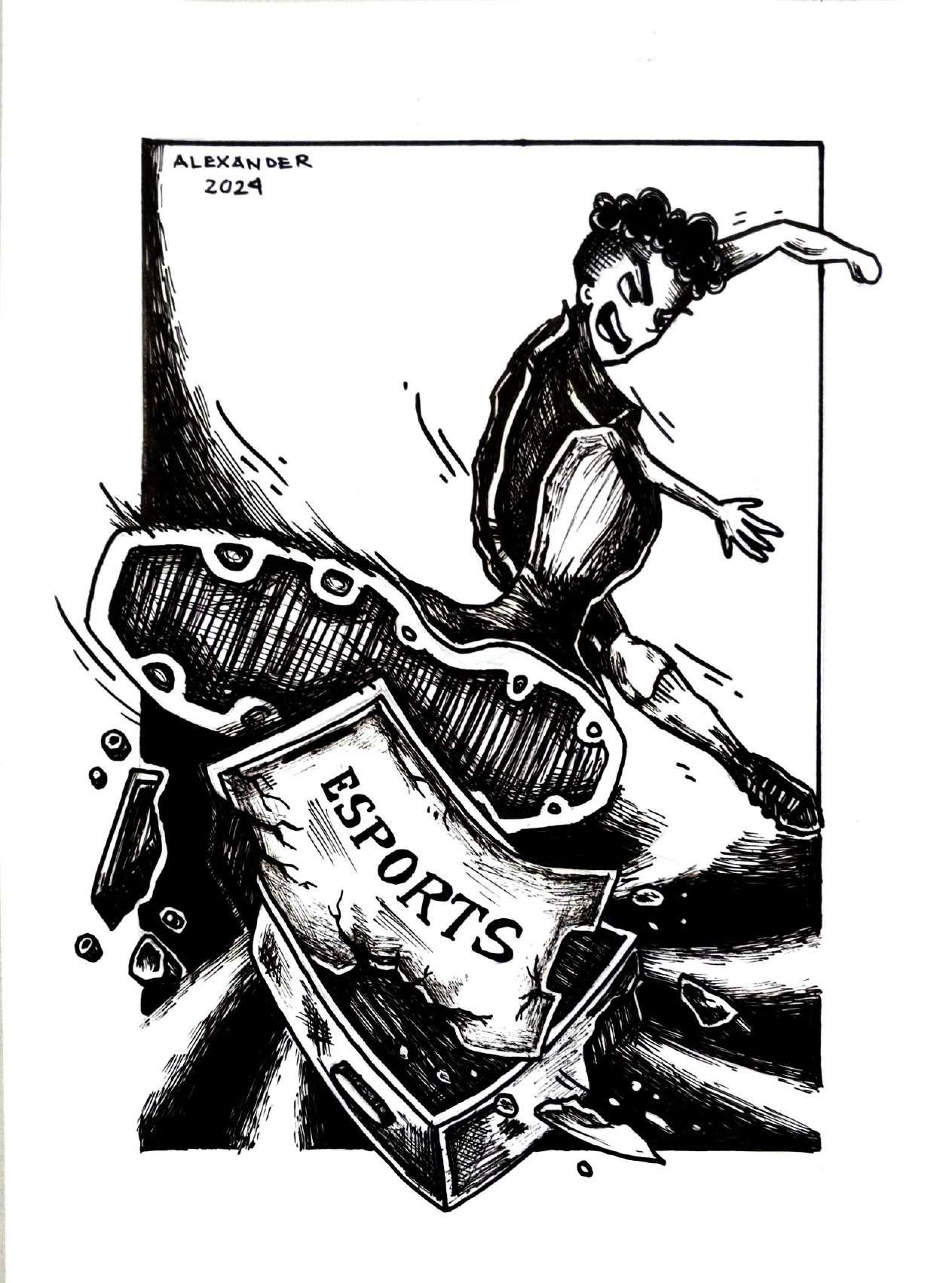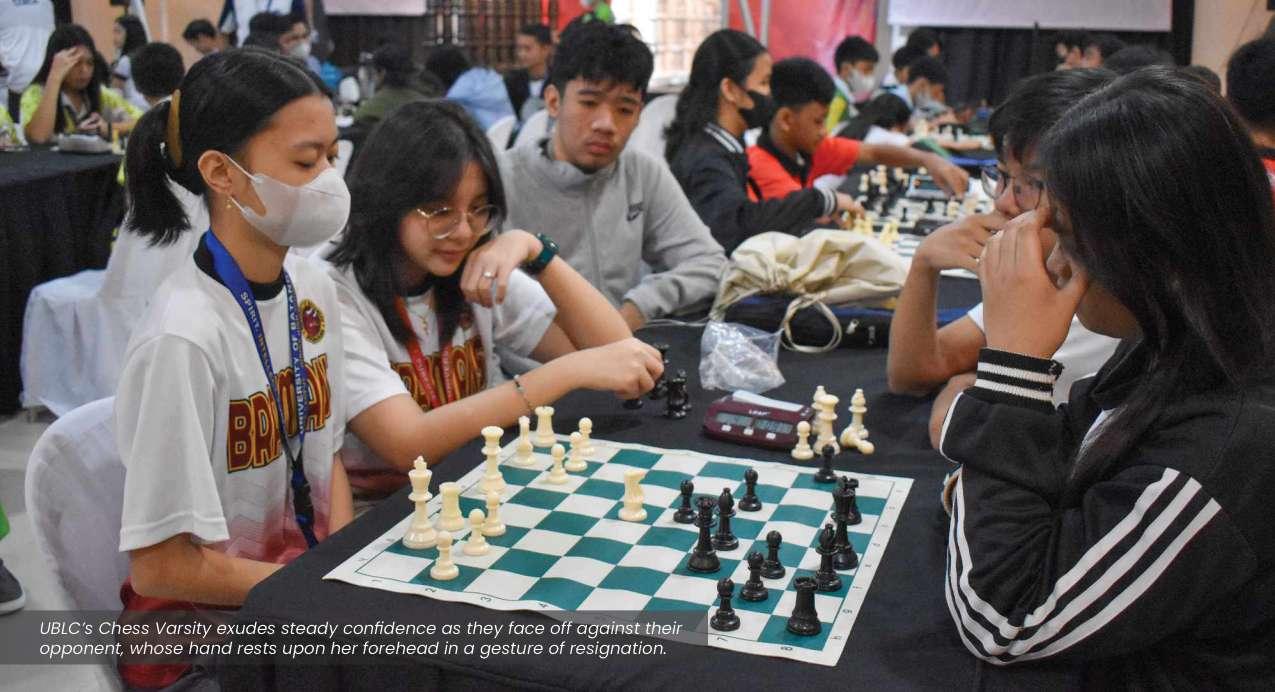














The

for
and

A close-up shot of a student in costume, during the Halloween event organized by the UAPSA-UBL at UBLC Multi-purpose



















The

for
and

A close-up shot of a student in costume, during the Halloween event organized by the UAPSA-UBL at UBLC Multi-purpose
















































































Virtual games are now the ‘sports’ of the digital generation—the bread and butter of pro gamers worldwide. While they are currently favored by many, are online games really worth the fame as a sport when they do not show the ‘fitness’ aspect of traditional ones?
Esports is now branded as an official sport, seemingly due to their teamwork requirement, specialized skills, and training or sustained practice to maintain skill. Players study equipment, skills, talents, and other features of each game, as well as tactics and strategies to defeat other teams. First-person shooter (FPS) games like Valorant and Call of Duty require players to train their aim and accuracy, and Multiplayer Online Battle Arena (MOBA) games like DOTA and League of Legends require real-time strategy, memorizing maps, and character attributes. More than that, it is due to their ability to ignite competitiveness among players that many teenagers and young adults become addicted to gaming.
Traditionally, sports are physical activities played for competition and entertainment, with the purpose of keeping the body fit and healthy. Games and sports may be terms used similarly, but their competitive nature and level of activity differentiate one from the other. There are also games called mind sports, which, like esports, are non-physical, such as chess and other board games. However, even if mind games and esports are common in terms of being non-physical, mental exercise, and psychological skills, the distinction between the two is that esports involve competitive gaming within the digital platform, which results in excessive
exposure to the computer screen.
In this digital era, where everyone has their phones and Wi-Fi is now a necessity, its convenience to play gives it better appeal, unlike traditional sports where people need equipment and specialized locations. In addition, as esports became part of the Olympic Esports Series in 2021, many are interested in trying the games at least once, and many have shown interest in becoming pro gamers. In fact, because of their fame, these are also integrated into schools and universities in their
This risk makes it questionable if it is worth the decision to redefine sports... “ “
sports festivals. Schools are now also offering scholarships for talented gamers who want to go pro, such as Ateneo de Manila University (AdMU), Mapua Uni- versity (MU), and University of the Philippines - Diliman (UPD).
However, the increase of players aiming to become professionals in the field also justifies their relentless playing, which may result in risks to their health, both physical and mental. While all players of any age are prone to these risks, children are more likely to suffer as they have lower immune systems, and it may
stunt their growth period. The nature of this sport involves sitting in front of phones, computer monitors, or other electronic devices for ridiculous amounts of time. According to a study by Zwibel et al. that looked at the health effects on esports participants, esports athletes are more likely to get musculoskeletal injuries to their neck, back, and upper limbs, like muscle stiffness, strain, and spasms. Its nature not only causes metabolic problems but also strains the eyes of the players due to the blue light emitted by screens, as well as by focusing on a fixed point for an extended period. Too much competitiveness on screen also causes depression and impacts real-life performances.
This risk makes it questionable if it is worth the decision to redefine sports to cater to the market. In exchange for the money and entertainment gained in the virtual world, players are exposed to health risks, and there are already cases of deaths caused by extreme playing. By labeling it as a future job opportunity, what happens to the true purpose of sports as a promoter of fitness and health?
The change brought by technology does great wonders, but this direction of change within the sports industry is quite underwhelming once long-term effects show. While it is not bad to encourage and let people play however they want, unrestrained actions will eventually cost players more than they thought. To compromise one’s entertainment or to compromise on one’s health—a struggling choice for gamers.
Once this time comes, gamers will have to choose between compromising one’s entertainment and one’s health.

















































experiences.








 BY REVIN LANDICHO
BY REVIN LANDICHO
























